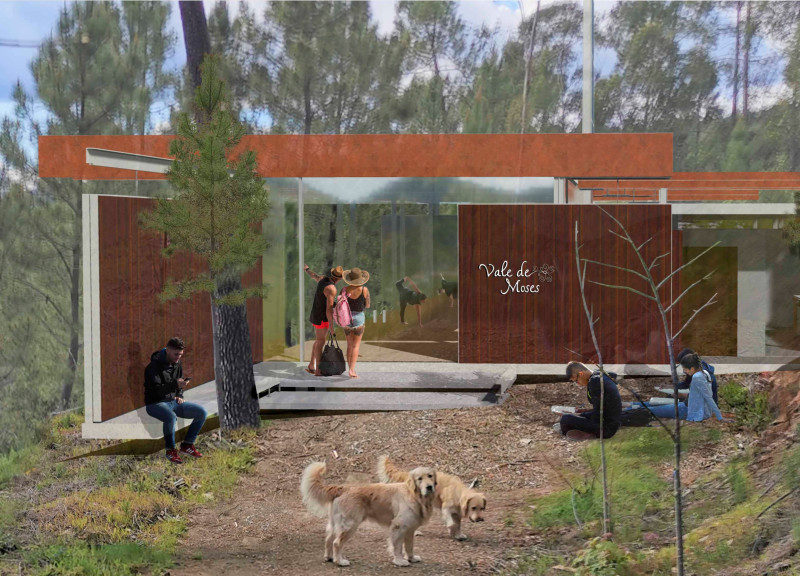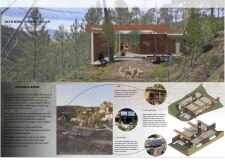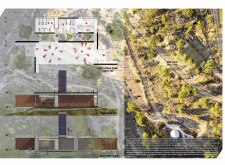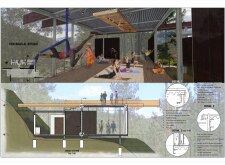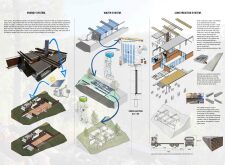5 key facts about this project
The design of the Yoga House incorporates a variety of unique elements, emphasizing the importance of natural light and openness. Large glass windows are strategically placed to create a visual connection between indoor spaces and the breathtaking views of the forest. This use of glass not only invites ample natural light into the interior but also fosters a sense of tranquility and connection to the outside environment. The thoughtful arrangement of the layout allows for flexibility, accommodating various activities, from yoga sessions to group workshops, while still providing areas for personal reflection and solitude.
Material selection plays a critical role in the overall design and sustainability of the project. Wood is extensively used, giving warmth and an organic feel to the spaces, while also being a renewable resource that aligns with the project's ecological ethos. Steel elements lend structural integrity to the building, allowing for expansive open areas without compromising stability. Concrete is employed for foundational and structural support, ensuring the longevity of the project, while solar panels incorporated into the design contribute to energy efficiency by harnessing renewable resources.
A particularly noteworthy aspect of the Vale de Moses Yoga House is its commitment to biophilic design principles. This approach underscores the importance of incorporating elements of nature into the architectural experience. The expansive views of the natural landscape are framed by the building, creating an immersive environment for users. The design encourages occupants to feel at one with their surroundings, enhancing their mindfulness and overall well-being during their stay.
The building's layout thoughtfully transitions between various functional spaces, enhancing its usability while maintaining a sense of cohesion. In addition to the main yoga studio, there are communal areas for social interaction, relaxation zones, and private rooms designed with tranquility in mind. This thoughtful arrangement supports the overall wellness goals of the retreat while fostering community among guests.
Moreover, water conservation measures, such as rainwater harvesting and efficient plumbing designs, are integrated into the architecture, demonstrating the project's overall commitment to sustainability. Every detail, from material choices to energy solutions, reflects a careful consideration of both human needs and environmental responsibilities.
For those interested in exploring architectural design further, the Vale de Moses Yoga House offers a range of insightful features. By delving into the architectural plans and sections, one can gain a deeper understanding of how the project embodies its core principles of sustainability and harmony. The architectural designs not only illustrate the creativity behind the building’s concept but also highlight the effective use of space and resources that characterize the project.
This comprehensive analysis highlights how the Vale de Moses Yoga House stands as a well-thought-out architectural project that speaks to the importance of wellness, nature, and sustainable living. Visitors and potential users of this retreat will appreciate the carefully considered elements woven into every aspect of the design, ensuring a tranquil and rejuvenating experience in a beautifully curated environment. For further insights into this project, exploring the architectural details and visual representations will provide an even richer understanding of this unique design endeavor.


